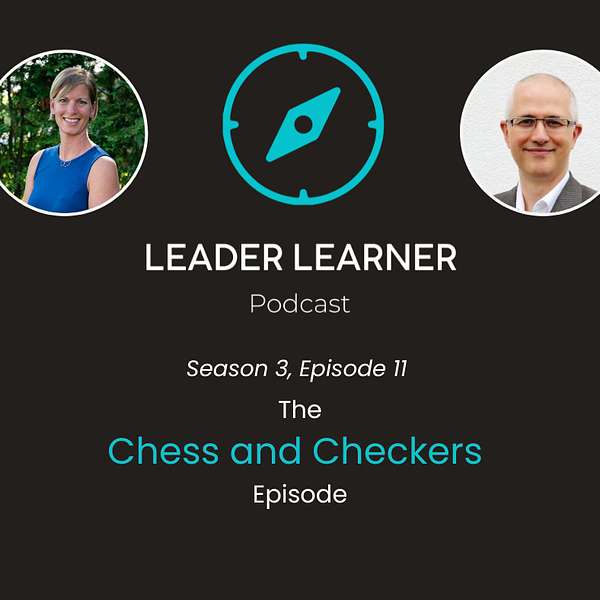
The Leader Learner Podcast
The Leader Learner podcast is for readers and leaders of all kinds. Theresa and Vincent both work as external learning and development providers to global organizations, supporting them in different ways.
In this podcast, they explore what they're learning from and with the organizations that they work with, as well as what they are learning through their own leadership practices.
The Leader Learner Podcast
S03E11 The Chess and Checkers Episode
•
Theresa Destrebecq & Vincent Musolino
•
Season 3
•
Episode 11
Use Left/Right to seek, Home/End to jump to start or end. Hold shift to jump forward or backward.
Check-In:
- If you could live anywhere, where would you live and why?
Big Ideas:
- when books make leadership seem easy, when it's not
- 5 elements that every team needs to function well together, written as a pyramid
- using books as a guide can lead us down the wrong path
- The 5 Dysfunctions are: Absence of Trust, Fear of Conflict, Lack of Commitment, Avoidance of Accountability, and Inattention to Results
- Lencioni is anti-consensus
- Can people have results without trust? (example - the Chicago Bulls of the 1990's)
- Trusting someone's character and capabilities
- Peer review of models
- Books can be seeds of discussion, but not guides for team performance
- Components of trust, and signs when trust is absent
- Trust not being valued by a manager - it being seen as too "fluffy"
- Does the importance of trust depend on the type of team you are within the organization?
- If everyone's competing for the CEO's job, how can you trust those you work with?
- Power in organizations - the individual versus the group
- How can one be political without being egotistical?
- Politics is making your power concrete. It's not bad or good in nature. It's a tool.
- What am I applying my politics for?
- Playing the game without playing the game. Being aware of the game and playing it for the good of the company.
- We teach people NOT to play politics at work, and then they get into organizations where people are all playing different games
- When people suffer when they don't know the rules of the game they are playing
- Play the game to be a successful contribution to the organization
- Belief that good people don't politics - it's not the tool, it's what you do with them that matters
- Can you win the fight being a good, upstanding person?
- Power is largely due to the collective sum of all the relationships you have within an organization.
- Fear driven relationships aren't relationships - they are transactional
- Choosing NOT to play the game, can be seen as more ethical
Resources:
- The 5 Dysfunctions of a Team by Patrick Lencioni
- Amy Edmondson and Psychological Safety
- Edgar Shein and Psychological Safety
- Maslow's Hierarchy of Needs
More yummy content on leaderlearner.fm

